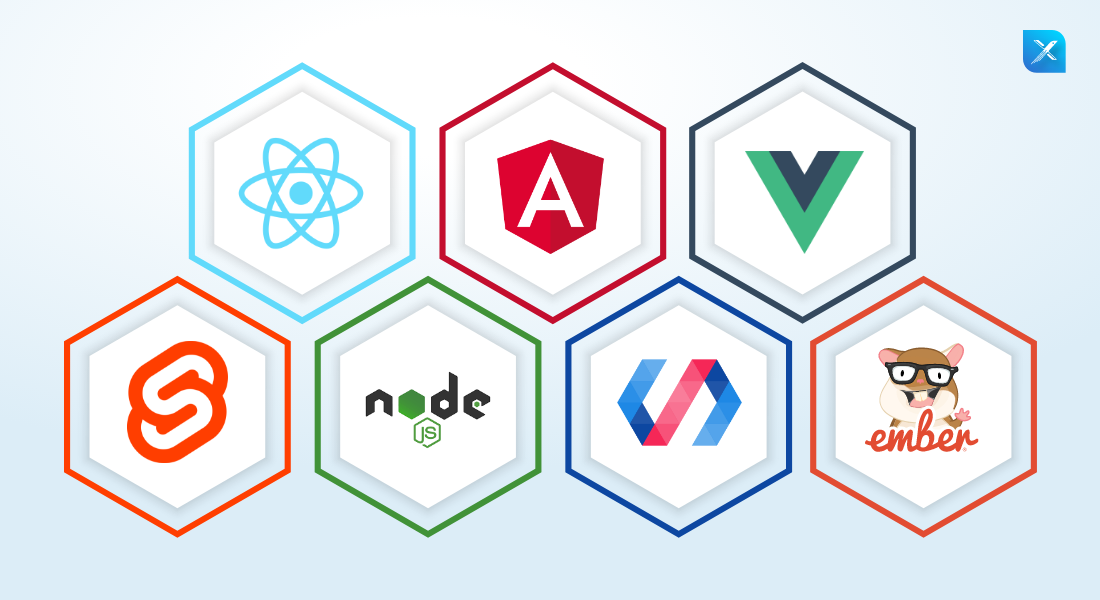Rise by Six: Your Daily Dose of Inspiration
Explore insights and stories that elevate your day.
JavaScript Frameworks: The Soap Opera of the Coding World
Dive into the dramatic world of JavaScript frameworks! Discover rivalries, betrayals, and triumphs that shape modern coding. Don't miss out!
The Rise and Fall of JavaScript Frameworks: Who's Reigning Supreme?
JavaScript frameworks have undergone significant transformations over the past decade, with many rising to prominence only to be overshadowed by newcomers. React, Vue.js, and Angular have dominated the scene for years, thanks to their robust features and strong community support. Each framework has its strengths: React excels in building user interfaces with its component-based architecture, while Vue.js is celebrated for its simplicity and ease of integration. On the other hand, Angular offers a comprehensive solution with a full-fledged development environment. However, as development needs evolve, the question arises: which frameworks will maintain their supremacy, and which will fade into obscurity?
The recent emergence of Solid.js, Svelte, and Next.js has stirred the pot, introducing innovative approaches to building applications. Each of these frameworks offers unique advantages that cater to modern development demands, such as improved performance and reduced bundle sizes. Developers are increasingly drawn to Svelte for its compile-time optimization, while Next.js provides a powerful framework for server-side rendering. As we move forward, the landscape of JavaScript frameworks will continue to shift, making it essential for developers to stay informed about these changes and choose wisely in this ever-evolving digital ecosystem.

JavaScript Frameworks Demystified: Which One Should You Choose?
In the ever-evolving world of web development, JavaScript frameworks play a crucial role in simplifying the creation of dynamic and interactive applications. With numerous options available, ranging from React and Angular to Vue.js, choosing the right framework can feel overwhelming. Each framework has its unique features, strengths, and weaknesses, which makes understanding their key differences essential for developers. For instance, React is renowned for its component-based architecture, while Angular offers a full-fledged framework with powerful tools for building complex applications.
When deciding which framework to adopt, consider factors such as your project requirements, team expertise, and long-term maintenance. A few critical questions to ponder include:
- What is the scale and complexity of the project?
- Does your team have experience with a particular framework?
- How important is community support and ecosystem?
The Drama of JavaScript Framework Updates: What Every Developer Should Know
In the fast-paced world of web development, JavaScript framework updates can feel like a double-edged sword. Developers often find themselves caught between leveraging the latest features and maintaining the stability of their applications. Frameworks like React, Angular, and Vue are continuously evolving, introducing powerful enhancements and resolving critical vulnerabilities. However, these updates can also bring breaking changes, forcing developers to adjust their existing code. Understanding the implications of these updates is crucial; each major or minor release can affect your project's compatibility and performance metrics.
As a developer, staying informed about JavaScript framework updates is essential. You should consider implementing a structured approach to manage updates effectively. Here are some key tips to navigate the drama:
- Subscribe to official blogs and forums of the frameworks you use to get timely updates.
- Utilize version control systems to manage changes and roll back if necessary.
- Perform thorough testing against new releases before deploying in production environments.
By keeping pace with these updates and strategically planning your integration, you can mitigate potential disruptions and harness the full power of modern JavaScript frameworks.